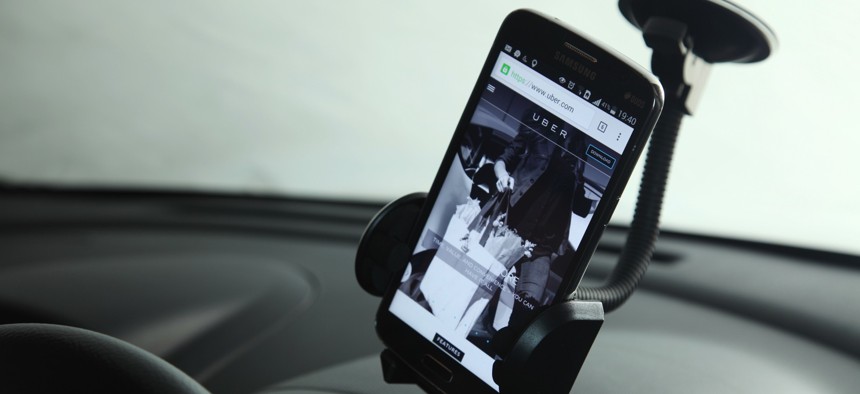California Labor Commission Ruling Could Upend Uber’s Business Model

eskay / Shutterstock.com
The ride-booking service classifies its drivers as “contractors.” But a new decision could lead to big changes for the company.
In a ruling released Wednesday morning, the California Labor Commission classified a driver for the San Francisco-based ride-booking service Uber as an “employee,” which could have major impacts on how the company operates, currently with legions of drivers around the world it considers “independent contractors.”
This could, as Fortune reports, “could change everything for Uber.”
The decision involved a case brought against Uber by San Francisco resident Barbara Ann Berwick, a driver who had filed a claim involving a payment dispute. The commission ruled that Uber owed Berwick $4,150.20.
As it stands now, Uber employs its drivers as third-party contractors, operating as a logistics company that provides access to customer demand and directions, transactions, etc. for the drivers.
This ruling changes all that, turning Uber into a transportation startup instead of a logistics software company. That puts the company in a position to face a number of legal obstacles, as well as rising costs of employing those drivers directly and offering them benefits, etc.
Uber is appealing the commission’s ruling.
In a statement, the company points out that the California Labor Commission's ruling only applies to this single case:
The California Labor Commission’s ruling is non-binding and applies to a single driver. Indeed it is contrary to a previous ruling by the same commission, which concluded in 2012 that the driver ‘performed services as an independent contractor, and not as a bona fide employee.’ Five other states have also come to the same conclusion. It’s important to remember that the number one reason drivers choose to use Uber is because they have complete flexibility and control. The majority of them can and do choose to earn their living from multiple sources, including other ride sharing companies. We have appealed this ruling.
According to a statement from Gary Buffo, president of the National Limousine Association:
The NLA is very pleased with the fair and balanced ruling issued by the California Labor Commission. The NLA is committed to upholding universal standards and best practices for all companies that employ drivers for private transportation. It is crucial for state and local governments to develop proactive legislation as our industry continues to evolve and the market expands. The NLA commends the state of California. It is our belief that all ground transportation providers, including ride-hailing services, perform under the same basic guidelines.
Check out the California Labor Commission's ruling here (.pdf).
(Photo by eskay / Shutterstock.com)
This article has been updated with additional reaction to the California Labor Commission's ruling from Uber and the National Limousine Association.
NEXT STORY: Internet2 pilots SDN operating system






